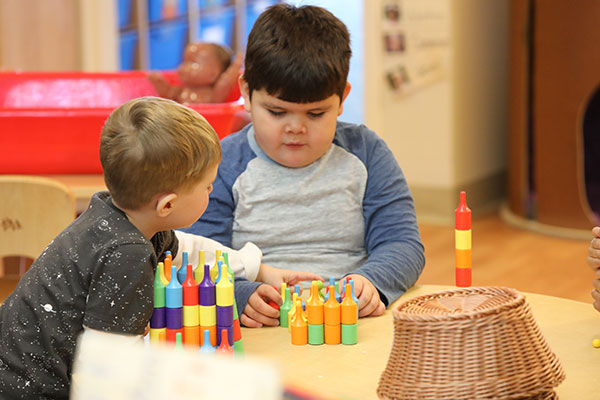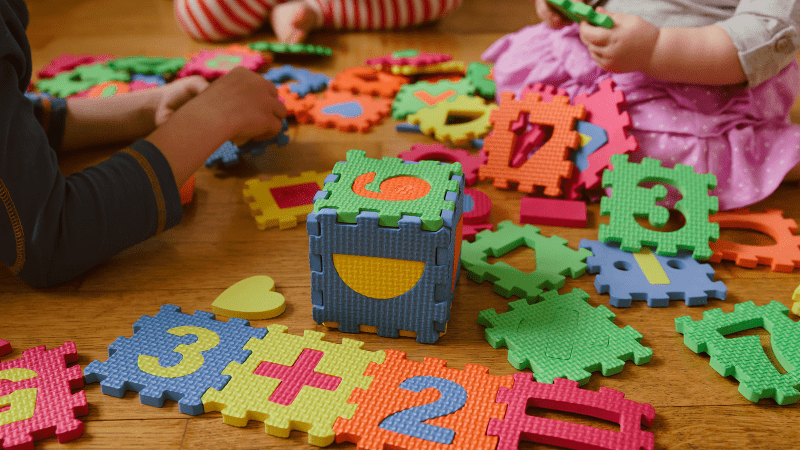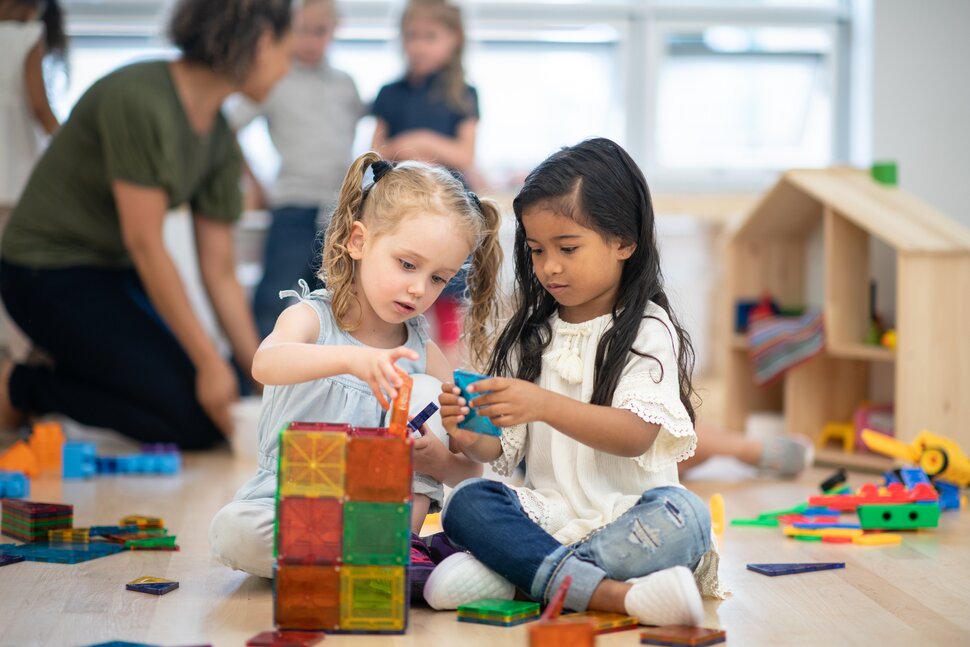Montessori Classrooms
Associative Play: A Guide to Enhancing Your Child’s Development
At around 3-4 years old, children usually enter the phase of play known as associative play. During this stage, kids begin playing together, but they don’t necessarily coordinate their activities or work collaboratively.
What motivates children to engage in associative play? How can this type of play be advantageous, and what lessons can parents, teachers, and caregivers glean from it? Keep reading to discover more!

What is Associative Play?
As children grow and develop, they begin to engage in different types of play, including solitary play, parallel play, and associative play. Associative play is a type of play where children interact with each other, but there is no clear goal or organized activity. Instead, they engage in a variety of different activities together, sometimes sharing toys or materials, but often engaging in parallel activities. So, what exactly is associative play, and why is it important for children’s development?
Associative play typically begins around the age of 2 or 3, when children start to show an interest in playing with others. During this stage, children are still learning how to interact with others, and may not always have the skills to engage in more structured activities or games. Instead, they may simply enjoy being in the same space as other children, watching what they are doing, and occasionally interacting with them.
As children get older, associative play can become more complex. Children may begin to engage in more cooperative activities, such as building a tower together or pretending to be characters in a story. They may also begin to take on different roles within their play, negotiating with each other and learning how to resolve conflicts.
So why is associative play important for children’s development? There are a number of reasons:
1. Social development: Associative play is a key way for children to learn how to interact with others. By engaging in this type of play, children learn how to take turns, share, negotiate, and resolve conflicts. They also learn how to communicate with others, both verbally and non-verbally.
2. Emotional development: Associative play can help children develop their emotional skills, such as empathy and understanding. By interacting with others, children learn how to recognize and respond to the emotions of others and develop a sense of compassion and caring.
3. Cognitive development: Associative play can also help children develop their cognitive skills, such as problem-solving and creativity. By engaging in open-ended play, children are able to explore their environment and develop new ideas and concepts.
4. Language development: Associative play provides children with opportunities to practice their language skills, both by listening to others and by expressing themselves. By engaging in conversations and storytelling, children develop their vocabulary, sentence structure, and overall language abilities.

The Benefits of Associate Play to Child Development
We will explore the benefits of associated play to child development.
1. Social Skills Development
Associate play is an excellent way for children to develop social skills. When children play with their peers, they learn how to interact with others, share, take turns, and negotiate. These skills are essential in building healthy relationships with others. Through associate play, children also learn how to empathize with others and understand their feelings. As a result, children who engage in associate play tend to have better social skills and are more likely to make friends.
2. Cognitive Development
Associate play also helps children develop their cognitive skills. Children who engage in associate play are exposed to new ideas, perspectives, and ways of thinking. They learn to think creatively, problem-solve, and use their imagination. Through associate play, children also learn to communicate effectively, which helps to develop their language skills.
3. Emotional Development
Associate play is an excellent opportunity for children to develop their emotional skills. When children play with their peers, they learn to manage their emotions, such as anger, frustration, and disappointment. This helps them to develop emotional resilience, which is essential in dealing with life’s challenges. Through associate play, children also learn to express their feelings and understand the impact of their actions on others.
4. Physical Development
Associate play also helps children develop their physical skills. When children play with their peers, they engage in physical activities that help them develop their motor skills. They learn to run, jump, climb, and balance, which is essential in developing their coordination and balance.

Associate play is crucial to children’s development. It helps them develop social, cognitive, emotional, and physical skills that are essential in building healthy relationships with others and succeeding in life. As parents, we should encourage our children to engage in associate play and provide them with opportunities to do so. By doing so, we can help our children become well-rounded individuals who are equipped to face life’s challenges.
>> Read more: Parallel Play: How to Apply it in Your Child Development
